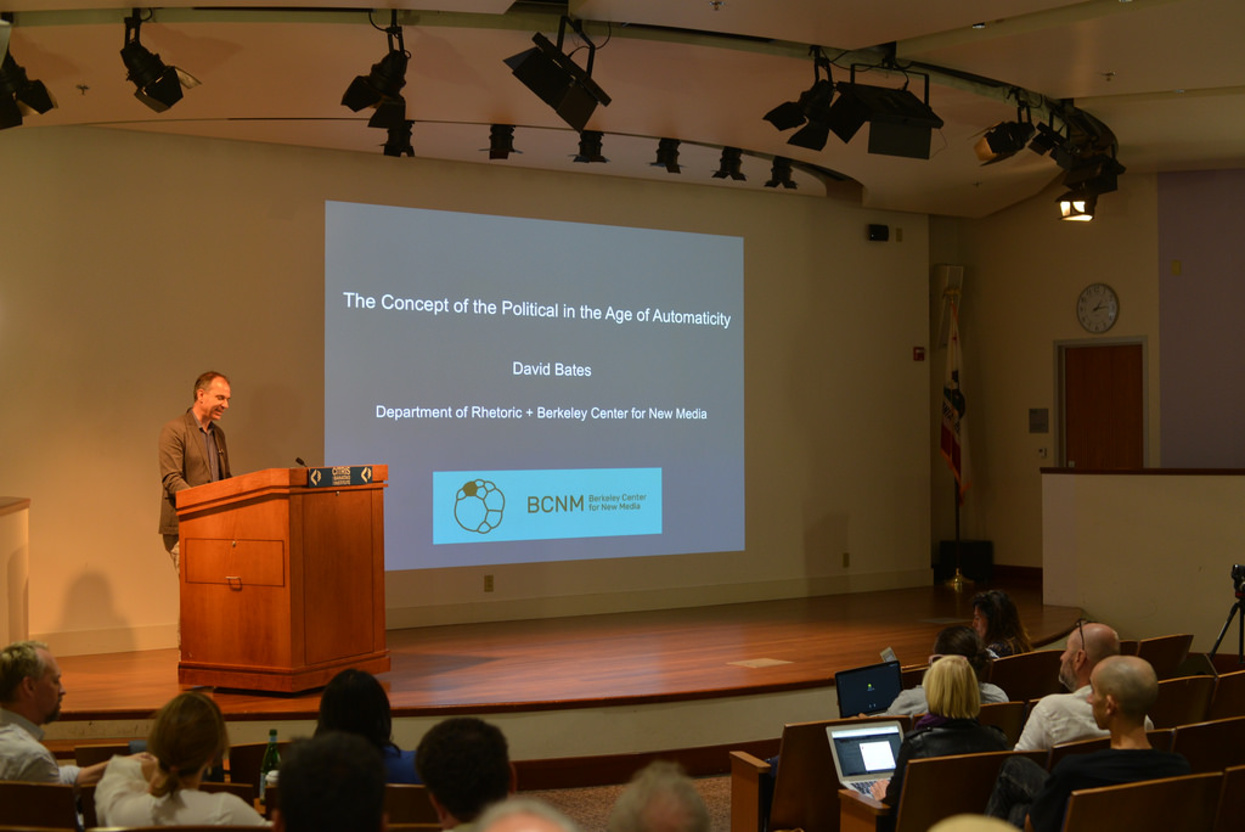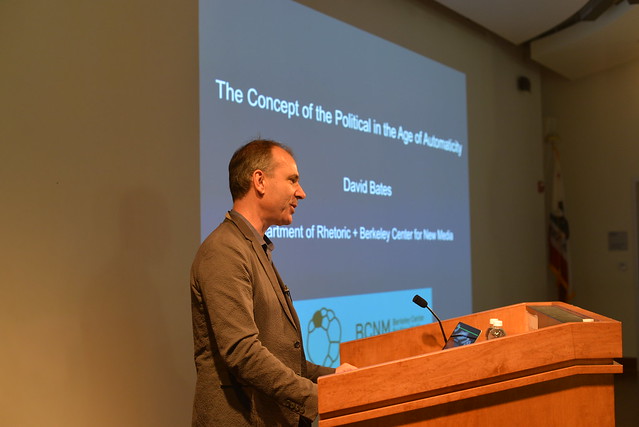Revisited: HTNM Conference — Between the Digital and the Political

History and Theory of New Media Graduate Liaison Renée Pastel recaps the “Between Digital and the Political: New Ecologies of the Mind” symposium on 10/17/17.
On October 17, 2017, the Berkeley Center for New Media held the “Between Digital and the Political: New Ecologies of the Mind” symposium in order to consider the political implications of contemporary media philosophy. Stepping in for guest speaker Erich Hörl, who was unable to attend, Rhetoric Professor and conference organizer David Bates outlined the historical context of the concept of the political with his talk, “The Concept of the Political in the Age of Automaticity.” Outlining the problem of the political, beginning with anthropologist Gregory Bateson and the concept of ecology of the mind, Bates traced the enmeshing of human mind and networks through the thought of Gilles Deleuze, Antoinette Rouvroy and Thomas Berns, Bernard Stiegler, and Benjamin Bratton. Sketching different models of the challenges of the political through Carl Schmitt and the essence of the political, Bates ultimately arrived at the model of the katechon of the cybernetic age. He outlined the political as the deferral of chaos, rather than as the instantiation of “order,” concluding his talk by proposing that the 21st century katechon provokes openness and power within techno-political systems and holds the potential for decisions as an interruption of norms.
Dr. Yuk Hui, research associate at the Leuphana University Lüneburg, spoke next, presenting his talk “Archives of the Future: Remarks on the Concept of Tertiary Protention.” Hui began by unpacking the Derridean model of the archive, especially in terms of the presupposition of future interest. He then laid out a relationship of protention and retention, using Husserl’s Bernau manuscript and Stiegler’s definition of tertiary retention from Technics and Time. Putting pressure on the reliance on objects and exteriorization of futurecasting or memory (in protention or retention, respectively), Hui then moved to the final phase of his talk—connecting tertiary protention to computational hermeneutics. It is in this last section that Hui began to most specifically address the questions of digital technology and the future of the archive, discussing smart home objects that predict need before it is felt, and posing the philosophical question of a new temporal structuring by such objects and a resulting new politics of time. The Q+A for this talk focused on delineating the connections between the talk and the theme of ecologies of mind, interrogating the human/machine relation and recursivity of thought. This then led to a productive discussion of algorithmic thinking and the politics of algorithms.
To cap the event, symposium participants convened for a panel discussion, which placed Bates and Hui into conversation with visiting professor Luciana Parisi of the Philosophy Department at Goldsmiths, London and Professor Warren Sack of the Film and Digital Media Department at UC Santa Cruz. Parisi opened the discussion by examining mind and mediation, with models of thinking and extended cognition through new media and the realm of politics as resolutely human. She posed the main questions as learning from contingency, rethinking instrumentality, and machines as impoverished in ability to make political decisions. Sack followed up by reframing the discussion of technology and politics in the terms of work-language and machine-language as defining information technology and computation technology, respectively. Using this to interrogate the politics of algorithms, he questioned the separate vocabularies of these languages and proposed the politics of technology as a means to “cut across the grain.” The Q+A that followed explored several of the themes raised by the two talks and within the panel response, threading issues of automation, capitalism, the figural and sovereignty, resulting in stimulating discussion from Bates, Hui, Parisi and Sack.

